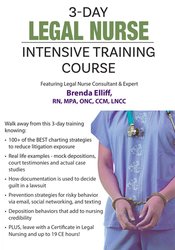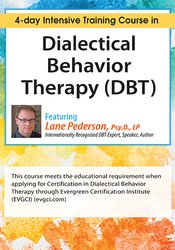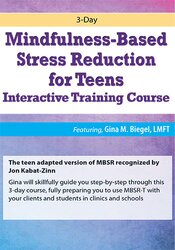Clinical Applications of the Polyvagal Theory with Stephen Porges, PhD: Trauma, Attachment, Self-Regulation & Emotions – Stephen Porges
$99.00 Original price was: $99.00.$23.00Current price is: $23.00.
Clinical Applications of the Polyvagal Theory with Stephen Porges, PhD: Trauma, Attachment, Self-Regulation & Emotions – Stephen Porges Download. Discover …
Salepage link: At HERE. Archive:
Discover how powerful insight from the Polyvagal Theory can help you tap into your clients’ nervous system and accelerate treatment outcomes.
Polyvagal Theory has revolutionized our understanding of both how the body’s autonomic nervous system responds to fear and trauma and how therapists can work with it to create safety, connection and lasting healing.
Now you can watch Stephen Porges, PhD, creator of the evidence-based Polyvagal Theory to learn how the Polyvagal Theory leverages neurobiology and psychophysiological cues to enhance your ability to treat trauma, anxiety, ADHD, addiction, depression – and a host of other mental health conditions.
Get practical guidance into the therapeutic power of facial expression, eye contact, voice modulation, and listening to help your clients overcome traumatic experiences, attachment wounds, and self-regulation problems – insight that can enhance any therapeutic approach and help you achieve lasting clinical outcomes.
Through interactive demonstrations, videos, and engaging discussions, you’ll learn practical methods of applying Polyvagal Theory within the clinical setting to help clients of all ages.
You’ll walk away with effective interventions that build client safety and connectedness.
Don’t miss this opportunity to discover how the nervous system holds the key to improving treatment outcomes, even with your most challenging cases.
- Characterize the principle features and foundation of the Polyvagal Theory.
- Articulate how the Polyvagal Theory may explain behavioral features related to psychiatric disorders and other behavioral problems.
- Explore how maladaptive behaviors, which may accompany several psychiatric disorders, may reflect adaptive responses triggered by survival mechanisms.
- Communicate how the neural process (neuroception) evaluates risk in the environment and triggers adaptive neural circuits promoting either social interactions or defensive behaviors.
- Appraise the definition of the features of the Social Engagement System to include the neural pathways that connect the brain, face, and heart.
- Illustrate how deficits in the regulation of the Social Engagement System are expressed as core features of several psychiatric disorders.
- Specify how therapeutic presence is based on the interaction between the Social Engagement Systems of client and therapist.
- Evaluate how the Social Engagement System is involved in optimizing therapeutic outcomes.
- Ascertain which features of the Social Engagement System are compromised by stress and trauma.
The Polyvagal Theory
- The biology of safety and danger
- The principles and features of the Polyvagal Theory and how to apply it in a clinical setting
- How the Polyvagal Theory can explain several features related to stress-related illnesses and psychiatric disorders such as PTSD, autism, depression, and anxiety
- The Social Engagement System and how it compromised by stress and trauma
- Resetting our Social Engagement System
- Evolutionary changes and adaptive functions in the autonomic nervous system
- Humans response hierarchy to challenges
- Three neural platforms that provide the neurophysiological bases for social engagement, fight/flight, and shutdown behaviors
Social Engagement System and Psychiatric and Behavioral Disorders
- A description of the “face-heart” connection that forms a functional social engagement system
- How our facial expressions, vocalizations, and gestures are regulated by neural mechanisms that are involved in regulating our autonomic nervous system
Neuroception: Detecting and Evaluating Risk
- How our social and physical environment triggers changes in physiological state
- Understanding that adaptive physiological reactions may result in maladaptive behaviors
- Immobilization without fear
- Play as a neural exercise
- Listening as a neural exercise
”Demystifying” Common Biobehavioral Responses to Trauma and Abuse
- Fight/flight and immobilization defense strategies
- Adaptive function of immobilization and the associated clinical difficulties
- How the stresses and challenges of life distort social awareness and displace spontaneous social engagement behaviors with defensive reactions
Applying the Polyvagal Theory in Clinical Settings to Improve Treatment Outcome
- Understanding and treating auditory hypersensitivities
- Emotional state regulation as a core feature of psychiatric disorders
- Deconstructing features of autism and PTSD
- Strategies to explain disruption and repair of symbiotic regulation
- Identifying social cues that disrupt or repair defensive reaction
- Risks & limitations of the theory & clinical practice
Here's an overview of the prominent keywords and a list of famous authors:
Business and Sales: Explore business strategies, sales skills, entrepreneurship, and brand-building from authors like Joe Wicks, Jillian Michaels, and Tony Horton.
Sports and Fitness: Enhance athleticism, improve health and fitness with guidance from experts like Shaun T, Kayla Itsines, and Yoga with Adriene.
Personal Development: Develop communication skills, time management, creative thinking, and enhance self-awareness from authors like Gretchen Rubin, Simon Sinek, and Marie Kondo.
Technology and Coding: Learn about artificial intelligence, data analytics, programming, and blockchain technology from thought leaders like Neil deGrasse Tyson, Amy Cuddy, and Malcolm Gladwell.
Lifestyle and Wellness: Discover courses on holistic health, yoga, and healthy living from authors like Elizabeth Gilbert, Bill Nye, and Tracy Anderson.
Art and Creativity: Explore the world of art, creativity, and painting with guidance from renowned artists like Bob Ross and others.
All the courses on WSOlib are led by top authors and experts in their respective fields. Rest assured that the knowledge and skills you acquire are reliable and highly applicable.
Specification: Clinical Applications of the Polyvagal Theory with Stephen Porges, PhD: Trauma, Attachment, Self-Regulation & Emotions – Stephen Porges
|
User Reviews
Only logged in customers who have purchased this product may leave a review.
$99.00 Original price was: $99.00.$23.00Current price is: $23.00.
Related Products

3 Day -Legal Nurse Intensive Training Course – Brenda Elliff

Fall Prevention Specialist Certification Course -Fall-proof Your Patients with Today’s Best Practices – Michel (Shelly) Denes

Dialectical Behavior Therapy (DBT): 4-day Intensive Certification Training Course – Lane Pederson

3-Day Mindfulness-Based Stress Reduction for Teens Interactive Training Course – Gina M. Biegel

3-Day-Legal Nurse Intensive Training Course – Rosale Lobo

$99.00 Original price was: $99.00.$23.00Current price is: $23.00.







There are no reviews yet.